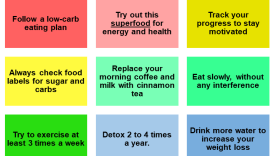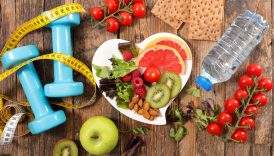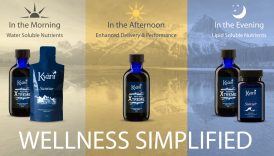Collagen Unveiled: Secrets to a Healthy and Nourished Life

Importance of Collagen
Collagen is often regarded as the building block of our body. It accounts for about 30% of the total protein content and serves as a crucial structural component in various tissues, providing strength and elasticity. As we age, our natural collagen production diminishes, leading to visible signs of aging such as wrinkles and sagging skin. Furthermore, it plays a pivotal role in maintaining joint health and bone density, making it essential for overall well-being. Understanding the importance of collagen can motivate individuals to prioritize their dietary choices and lifestyle habits. For instance, many people notice substantial improvements in their skin and joint health after incorporating collagen-rich foods or supplements into their routine.
- Collagen Unveiled: Secrets to a Healthy and Nourished Life
- Importance of Collagen
- Historical uses of Collagen
- Understanding Collagen
- What is Collagen?
- Types of Collagen
- Benefits of Collagen
- Skin Health
- Joint Health
- Sources of Collagen
- Natural sources
- Supplements
- Factors Affecting Collagen Production
- Age
- Lifestyle choices
- Incorporating Collagen into Your Diet
- Collagen-rich foods
- Collagen recipes
- Collagen in Beauty Products
- Skincare benefits
- Haircare benefits
- Collagen and Exercise
- Performance enhancement
- Recovery benefits
Historical uses of Collagen
Historically, collagen has been utilized in various cultures for its beneficial properties. Ancient Egyptians used it in their beauty regimens, and traditional Chinese medicine attributed healing powers to collagen derived from animal bones. Here are some noteworthy historical uses:
- Traditional Remedies: Bone broths were staples in many cultures, believed to improve health and promote longevity.
- Art and Craft: Collagen was extracted for use in making gelatin-based products, such as high-quality art supplies and food.
This rich history highlights not just its utility but the timeless understanding of collagen’s vital role in health and beauty.
Understanding Collagen
What is Collagen?
Collagen is a type of protein that forms the framework of various tissues in the body, such as skin, muscles, bones, tendons, and ligaments. Think of it as the glue that holds everything together. It’s what gives our skin its structure, keeps our joints flexible, and contributes to the overall integrity of our bodies. Most people underestimate the foundational role collagen plays in maintaining vitality and health. For example, after starting a routine of incorporating more collagen-rich foods, many individuals report feeling more agile and noticing improved skin elasticity.
Types of Collagen
There are at least 16 different types of collagen, but the most abundant ones are Types I, II, and III. Each type has distinct functions and benefits:
- Type I: Accounts for about 90% of the body’s collagen; it’s crucial for skin, bones, and tendons.
- Type II: Primarily found in cartilage, it supports joint health and flexibility.
- Type III: Works alongside Type I, found in skin and blood vessels; it helps with elasticity and firmness.
Understanding these types can empower individuals to choose the right collagen sources for their specific health goals. Whether it’s enhancing skin health or supporting joint function, knowing which type to focus on makes all the difference.
Benefits of Collagen
Skin Health
When it comes to skin health, collagen is a true superstar. As the foundation of our skin, it provides the structure and elasticity that keep it firm and youthful. Over time, factors like aging, sun exposure, and lifestyle habits can deplete collagen levels, leading to wrinkles and sagging. Many people find that incorporating collagen supplements or rich foods into their diet can lead to noticeable improvements. For instance, after several weeks on a collagen regimen, some individuals report:
- Increased skin hydration
- Reduction in fine lines and wrinkles
- Enhanced skin texture and elasticity
These enhancements can boost self-confidence and contribute to a more vibrant appearance.
Joint Health
Collagen is equally crucial for joint health. It helps maintain the integrity of cartilage, the tissue that cushions joints. With age, cartilage can wear down, resulting in discomfort and stiffness. Various studies highlight how collagen supplementation can support joint function, particularly for athletes and those with active lifestyles. Benefits include:
- Reduced joint pain during movement
- Improved flexibility and range of motion
- Quicker recovery post-exercise
Investing in collagen, whether through diet or supplements, can significantly enhance both skin and joint health, ultimately leading to a more active and fulfilling lifestyle.
Sources of Collagen
Natural sources
When it comes to natural sources of collagen, food plays a vital role. Incorporating specific foods into your diet can significantly boost your collagen levels and, in turn, your skin and joint health. Some excellent natural sources include:
- Bone Broth: A staple in many cultures, it’s rich in collagen and nutrients. Many people enjoy sipping it as a warm beverage or using it as a base for soups.
- Fish and Shellfish: The skin and bones of fish are packed with collagen. Choices like salmon are not only delicious but also beneficial for skin health.
- Chicken: Rich in connective tissues, chicken skin and tendons are rich collagen sources.
- Egg Whites: These contain proline, an amino acid essential for collagen synthesis.
These foods can easily be integrated into numerous dishes, making it simple to nourish your body.
Supplements
For those looking for a more concentrated boost, collagen supplements offer an effective alternative. Available in various forms, such as powders, capsules, and drinks, they make it convenient to incorporate collagen into your daily routine. Common types of collagen supplements include:
- Hydrolyzed Collagen: Also known as collagen peptides, these are broken down for easier absorption.
- Type-specific Collagen: Targeted supplements may focus on Type I for skin or Type II for joints.
Many people discover that adding a scoop of collagen powder to their morning smoothie makes for an easy and tasty way to enhance their overall health. It’s all about finding what fits best into your lifestyle!
Factors Affecting Collagen Production
Age
As individuals age, collagen production naturally declines, typically starting in their mid-20s. By the time one is in their 50s or 60s, those collagen levels can decrease by as much as 30%. This decline is a significant reason many people start to notice signs of aging, such as wrinkles, sagging skin, and joint discomfort. In a personal conversation with a friend who recently turned 50, she mentioned that though she had always been diligent about skincare, she noticed a difference in the suppleness of her skin. Learning about collagen and its decline made her more conscious of incorporating collagen-boosting foods and supplements into her diet.
Lifestyle choices
Lifestyle choices play a pivotal role in how much collagen your body produces. Factors such as diet, hydration, sun exposure, and smoking can significantly impact collagen levels. Consider these lifestyle tips:
- Balanced Diet: Consuming foods rich in vitamins C and E, zinc, and amino acids can promote collagen synthesis.
- Hydration: Drinking enough water helps maintain skin elasticity.
- Sun Protection: Prolonged sun exposure can break down collagen; using sunscreen is key.
- Avoid Smoking: Smoking can damage collagen and elastin, leading to premature aging.
By making mindful lifestyle choices, individuals can support their collagen production and promote healthier skin and joints well into their later years.
Incorporating Collagen into Your Diet
Collagen-rich foods
Incorporating collagen-rich foods into your daily diet is one of the simplest ways to boost your collagen production naturally. Many foods are not only delicious but also help support skin, joint, and overall health. Here are some top collagen-rich foods to consider:
- Bone Broth: Offers a hefty dose of collagen, and it can be made at home by simmering animal bones for several hours.
- Fish: Both the flesh and skin of fish, particularly salmon and tuna, are excellent sources.
- Chicken: As mentioned earlier, chicken is rich in connective tissues and provides valuable collagen.
- Eggs: The whites are especially beneficial as they contain proline, a key amino acid for collagen synthesis.
- Berries: While not directly containing collagen, they’re packed with vitamin C, which is crucial for collagen production.
Collagen recipes
Creating collagen-rich meals can be both enjoyable and easy. Consider trying these tasty recipes:
- Bone Broth Soup: Simmer beef or chicken bones for a warming, nutrient-rich broth. Add your favorite vegetables for added flavor and nutrition.
- Collagen Smoothie: Blend a scoop of collagen powder with bananas, spinach, and almond milk for a protein-packed breakfast.
- Oven-Baked Salmon: Season salmon with olive oil and herbs, then bake for a delicious dinner that’s not just tasty but also full of collagen.
Incorporating these foods and recipes into meal planning can delight your taste buds while nourishing your body!
Collagen in Beauty Products
Skincare benefits
Collagen isn’t just beneficial when consumed; it’s also a prominent ingredient in many skincare products. People have turned to collagen-infused creams, serums, and masks to restore their skin’s youthful appearance. For instance, individuals often notice improvements like:
- Increased Hydration: Collagen helps retain moisture, leading to plumper, more hydrated skin.
- Improved Elasticity: Regular use of collagen-based products can enhance skin elasticity, reducing the appearance of fine lines and wrinkles.
- Faster Healing: Collagen promotes skin repair, helping to soothe and heal blemishes or scars more effectively.
A friend of mine began using a collagen serum and fell in love with how it made her skin feel soft and supple, sharing her excitement about the visible difference it made to her complexion.
Haircare benefits
The benefits of collagen extend to haircare too, as it strengthens hair structure and promotes growth. Collagen-infused shampoos and conditioners can work wonders, leading to:
- Enhanced Strength: Collagen can help reduce breakage, resulting in fuller, healthier hair.
- Increased Glossiness: Regular use can add a natural sheen, making hair look vibrant and well-cared-for.
- Scalp Health: Collagen can help maintain moisture in the scalp, leading to improved overall scalp health.
Incorporating collagen into beauty routines can help individuals not only look great but feel confident in their skin and hair every day!
Collagen and Exercise
Performance enhancement
Incorporating collagen into your fitness routine can significantly enhance performance, particularly for those engaged in weight training or high-impact sports. Collagen provides essential amino acids, which are critical for building muscle and supporting overall strength. Many athletes, including my friend who’s a regular at the gym, swear by collagen supplements for improvements in their workout sessions. Some of the benefits they notice include:
- Improved Joint Stability: Collagen strengthens cartilage, leading to better joint support during intense exercises.
- Increased Muscle Mass: The amino acids in collagen assist in muscle repair and growth, helping athletes push through their limits.
- Enhanced Flexibility: Regular intake can lead to better mobility, making it easier to perform various exercises.
Recovery benefits
Post-exercise recovery is where collagen truly shines. After rigorous workouts, the body needs time to repair, and collagen plays a vital role in this process. Some popular recovery benefits include:
- Reduced Muscle Soreness: Collagen helps alleviate post-workout discomfort, allowing for quicker recovery.
- Faster Healing of Injuries: In cases of ligament or tendon injuries, collagen supports healing and restores strength.
- Improved Overall Recovery Time: Athletes often find that including collagen in their recovery snacks or smoothies shortens downtime between workouts.
By integrating collagen into both pre- and post-exercise routines, individuals can enhance their overall performance and bounce back stronger!





